The Independent's journalism is supported by our readers. When you purchase through links on our site, we may earn commission. Why trust us?
Organic September 2021: The simple swaps to make in your routine, from skincare to clothing
Whether it's tea bags or a cleaning product, small changes can make big differences
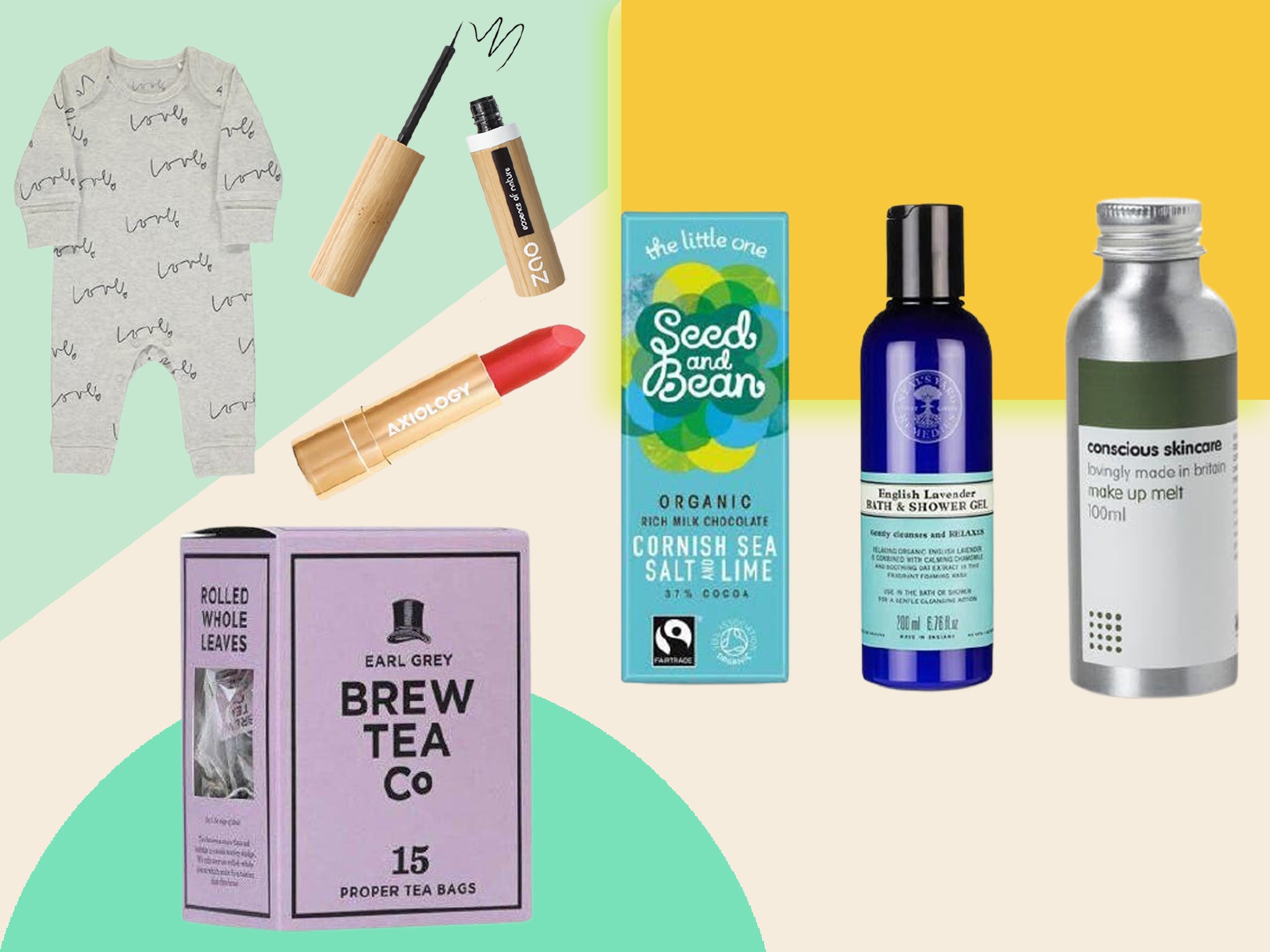
As we all make a concerted effort to eat better, buy better and be overall more conscious of the planet, one way you can make a difference is by opting for organic.
This month marks the start of Organic September, a month-long campaign founded and run by The Soil Association, the UK's leading food and farming charity and organic certification body, to raise awareness of the benefits of organic food and farming.
Some of the benefits of this include combating the climate crisis, employing better standards for welfare for wildlife, supporting biodiversity and reduced exposure to pesticides.
The campaign first began in 1994 and was originally known as Organic Harvest until 2012 when it was re-named to be Organic September.
You can get involved by being part of the conversation using the #OrganicSeptember hashtag, supporting organic farmers in your local community or attempting to grow your own organic produce at home.
Read more:
If you’re new to it, organic means ensuring the growth of food and crops sustains soils, ecosystems and people, which is regulated by the certification body once a year.
According to The Soil Association, for a food or drink product to be labelled as organic, at least 95 per cent of the ingredients must come from organically produced plants or animals. This label can also be found on skincare, make-up and cleaning products too.
There’s no shortage of places to shop organic, with products always emerging in food, wine, beauty, baby clothes and cleaning products. Organic September is the perfect time to make a commitment to trying to implement a more organic lifestyle.
Ahead we’ve curated the ultimate guide to making small swaps that will make a difference to your own life, local community and wider planet. After all, every little helps to make positive change on a global scale.
Wine, prosecco and tea
While we consider tea to be the most important drink of the day, switching out your usual for an organic alternative will make very little difference taste-wise, and can be environmentally friendly too.
In our guide to the best plastic-free tea bags, we loved this Brew Tea Co proper tea earl grey (£4.59, Brewteacompany.co.uk). Our reviewer described it as a brew full of flavour and depth, thanks to a blend of bergamot oil with ceylon black tea, orange peel and calendula petals.
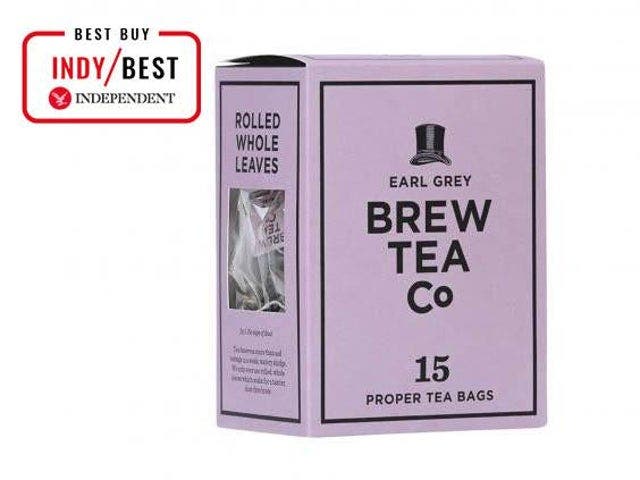
“All the tea bags from the brand are made from cornstarch, the inner lining is made from NatureFlex and inside the box is a really useful card telling you what all the packing is made from and how it should be recycled: from the tea bags and inner linings, which decompose in 45 days via your council food recycling bin, to the outer box which goes into the paper recycling,” they said.
Plenty of vineyards across the UK and other countries have been making organic wine for a long time.
In our guide to the best English sparkling wines, we were impressed with the Louis Pommery England brut (£35.99, Ocado.com)
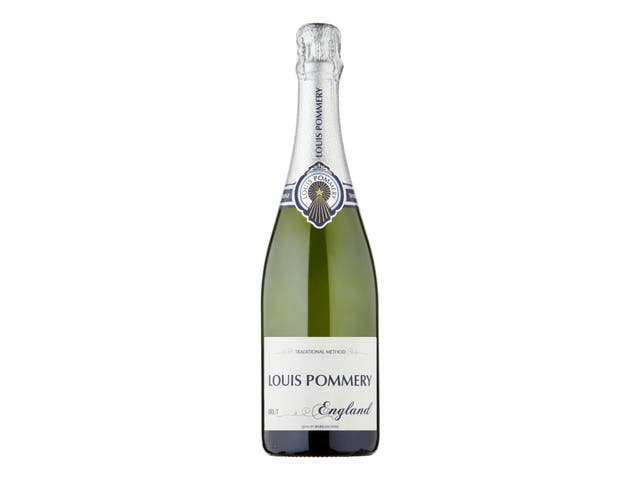
It’s a bottle definitely worth ordering next time you do an online supermarket shop, as our tester said: “Made using the traditional method with carefully selected chardonnay, pinot noir and pinot meunier grapes, this lively fizz is pale yellow in colour with a distinctive noise of honeyed stone fruits and refreshing lemon and lime, with a well-balanced mineral finish.”
It’s made by Vranken-Pommery, the first of the major champagne houses to launch an English sparkling wine, and for this, Louis Pommery collaborated with other local vineyards to produce this sparkler.
Or if you can't decide between a bottle of red or white, we've got you covered with our guide to the best orange wines, in which we loved this Bodegas Moraza Rioja viura moraza 4 caminos 2018 (£24.99, Buonvino.co.uk)
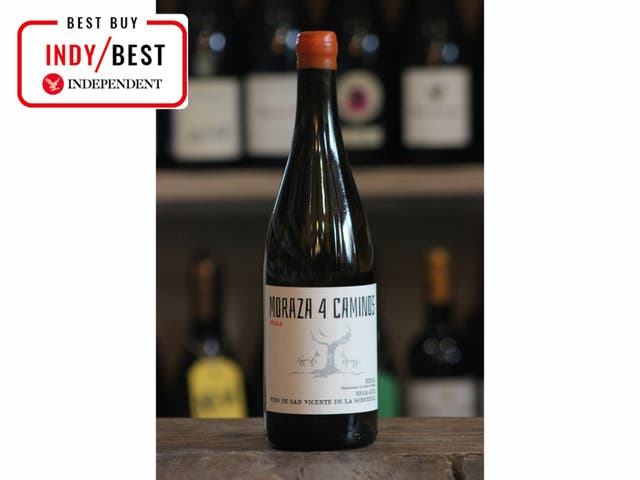
According to our reviewer, "It’s the type of wine that fits in with any occasion, from a casual afternoon in the sun to a fancy sit-down dinner. It’s made using 100 per cent viura grapes grown at high altitudes. The skin stays in contact for just a few days, giving it a light, delicate colour with subtle savoury notes of honey, almonds and apple.”
A firm favourite when brunching, there's also a wide range of organic proseccos available too. In our guide to the best organic wines to drink this September, this Castellore organic prosecco (£7.49, Aldi.co.uk) earned rave reviews.
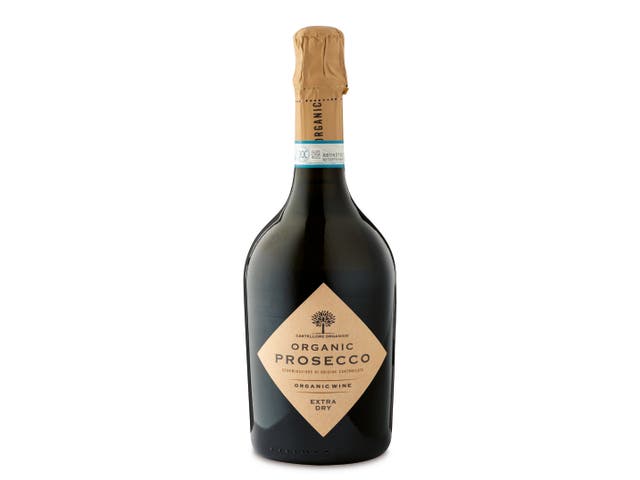
“Sourced from a 150-hectare estate 30km northeast of Venice that uses only renewable energy where possible, grapes are largely hand-picked and gently pressed to ensure only top-quality juice makes it into the bottle. The result is full of lively pear, apricot, apple and honeysuckle flavours which make this one of the most easy-drinking prosecco’s we’ve ever tried,” said our tester.
Food
There are many ways to introduce organic food into your diet, from sweet treats to cuts of meat. And when it comes to organic food, we've tested plenty of it, from cheeses to meat boxes and chocolate bars in order to find the products worth buying.
As we explained in our guide to the best meat boxes, free-range and organic chickens are meatier because they have developed good muscles – they also offer more complex flavours because of their healthier lifestyle and feed.
Organic and truly free-range pigs, meanwhile, are reared without the routine use of drugs, antibiotics and wormers common in intensive farming.
Coming in at number one in our round-up was the Cotswold Beef offal box (£60, Cotswoldbeef.com), which was rated as best for experimental chefs looking to expand their culinary repertoire. Cotswold Beef rears herds of organic, pasture for life cattle.
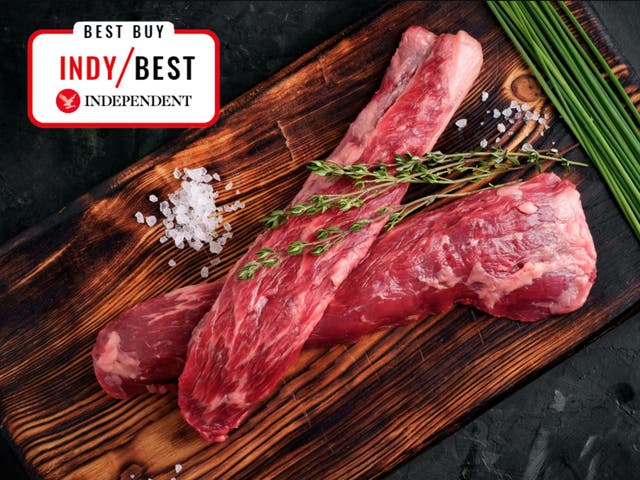
Our reviewer said: “A far cry from the headlines which usually demonises beef production as a main cause of climate change, Cotswold Beef are out to prove a slow-growing native breed of cattle can be beneficial for the environment – and biodiversity – if farmed in the right way. As such, their cows are mob grazed on wildflower meadows, herbal leys and permanent pasture. This farming method and dry ageing clearly captures flavour, too.”
If you’re a cheese lover, make a more considered purchase next time you stock up to pair with crackers, wine, grapes or in dishes.
In our guide to the best cheese subscription boxes, we loved the Abel and Cole monthly cheese club organic (£15.50, Abelandcole.co.uk) that our reviewer found fantastically priced with the option of weekly, fortnightly, monthly or bi-monthly deliveries.
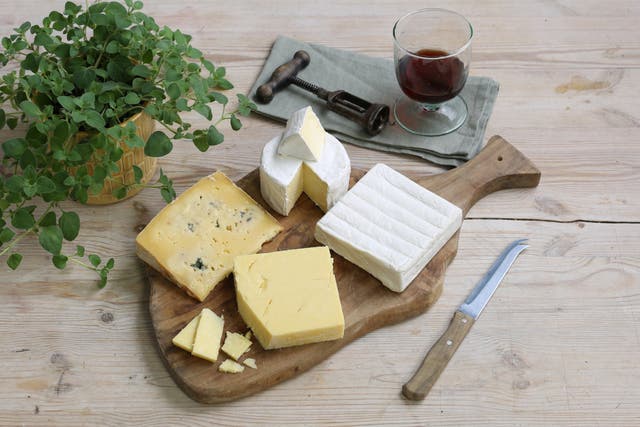
“Highlights in our box were a 100 per cent grass-fed cheddar we devoured chunks of (don’t judge us) and a punchy blue cheese from The Ethical Dairy, which rears calves alongside their milking mothers,” they said.
Aside from savoury foods, there's a big market for organic chocolate too.
In our guide to the best ethical chocolate brands that go the extra mile, Seed and Bean organic dark 66% chocolate with Cornish sea salt and lime (£2.99, Planetorganic.com) impressed our tester with its citric tang.
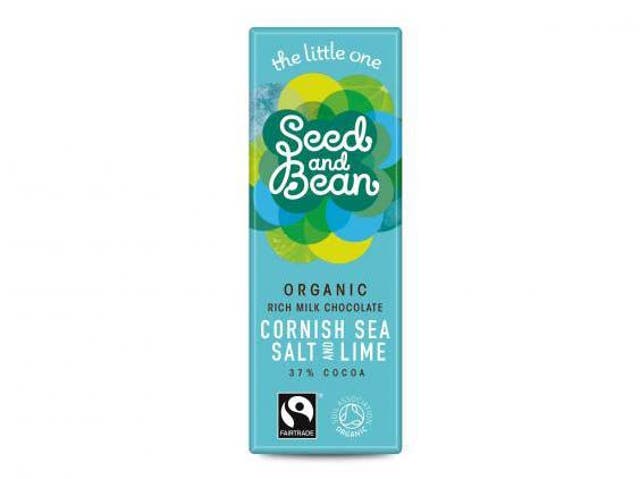
“Started in 2005 by Stephen Rudkin with the intention of being an ethical brand, that uses organic and small scale suppliers, Seed and Bean pays above market price for their cacao, the company only uses FLO certified chocolate (the certification for Fairtrade Standards) and none of it is mixed with conventional chocolate – that’s not Fairtrade – meaning farmers benefit from the Fairtrade premium from 100 per cent of the bar,” they said.
Additionally, the packaging is compostable, including the inner foil, which is made from eucalyptus tree pulp.
Beauty
As consumers become more informed than ever about what’s in their products and the origin of ingredients, organic products have become a real-go to.
As “organic” is not a legal or regulated term in skincare, look for products with a certification label from Soil Association label when shopping in the UK which require them to meet a strict criteria including a certain percentage of organic ingredients (typically at least 95 per cent) in order to carry the label.
This Pai camellia and rose gentle hydrating cleanser and cloth (£34, Johnlewis.com) is by beauty brand Pai, which boasts an entire line up of products certified organic and natural by the Soil Association, and are also vegan and cruelty-free.
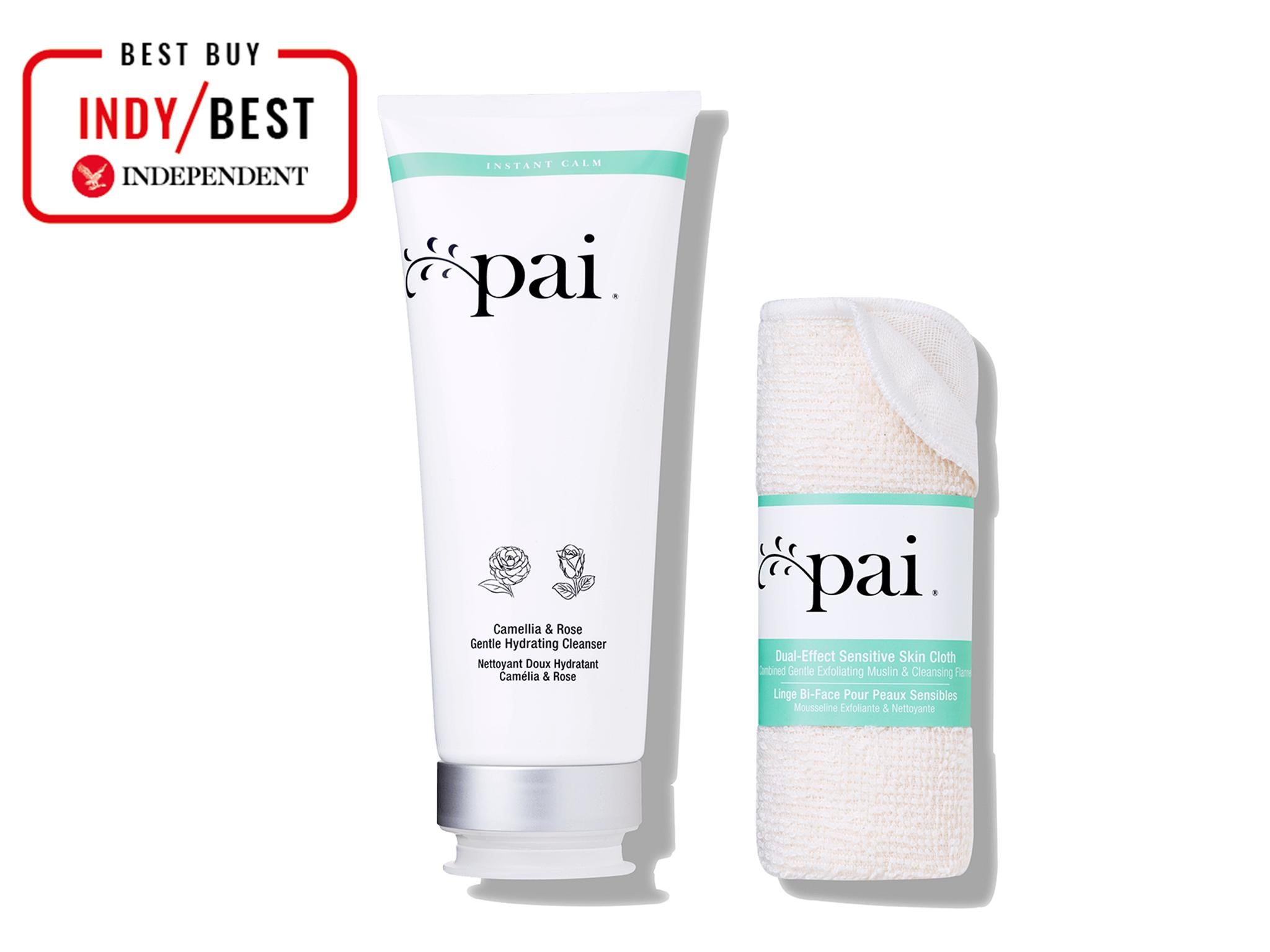
This product, which topped our guide to the best organic skincare products, is a cream formula, designed to remove makeup, dirt and grime without stripping natural moisture from your skin.
It also contains omega-9 and vitamin E-rich camellia oil, as well as nourishing rose otto oil. We’d recommend using it as a second cleanse with the face cloth included.
Treat yourself to this indulgent English lavender bath & shower gel (£14, Nealsyardremedies.com) from Neals’ Yard entire product range of certified organic skin and bodycare by the Soil Association, is carbon neutral and carries the cruelty-free Leaping Bunny label.
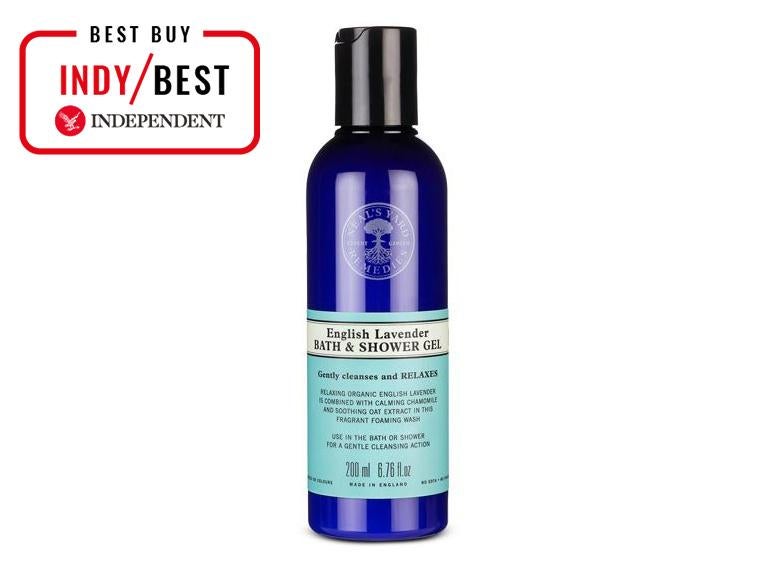
It has a sweet but not cloying fragrance and provides relief to sensitive, dry or itchy skin that we loved in our guide to the best organic body washes.
Another cleanser in our organic skincare roundup that received rave reviews is the Conscious Skincare make-up melt (£15, Consious-skincare.com).
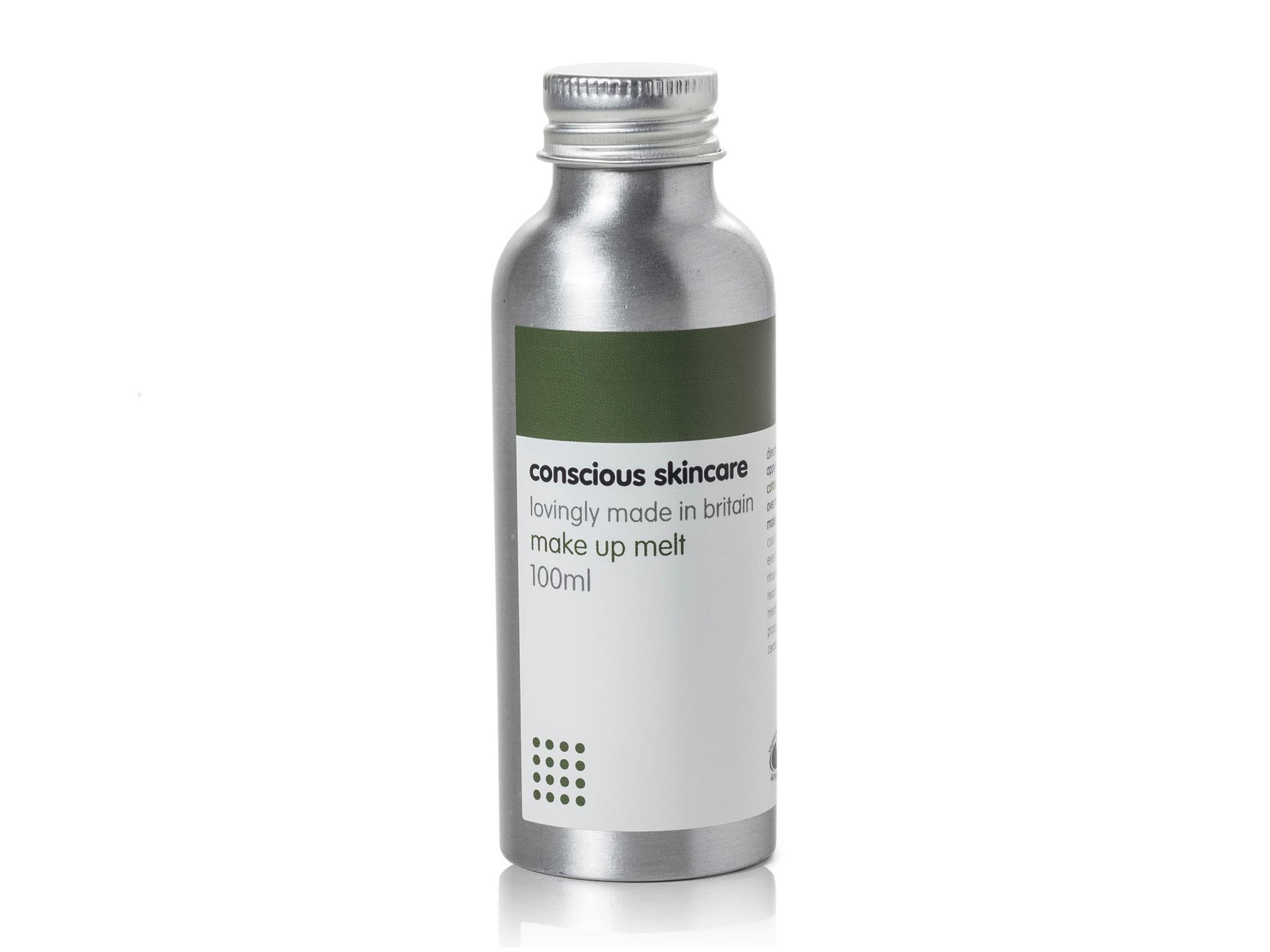
The lightweight blend of organic sesame and castor oils dissolves all make-up, including our waterproof eye products, without irritation or rubbing.
It also contains rosemary, eucalyptus and myrtle, which are essential oils to clarify and even out skin. It is certified vegetarian and cruelty-free, is suitable for vegans, and is completely plastic-free if you choose to order without the plastic pump.
Hyaluronic acid is a well-loved and commonly used product in skincare, thanks to its ability to hold more than 1,000 times its weight in water, making it ideal to treat parched skin.
We loved this Evolve Beauty hyaluronic serum 200 (£26.90, Feelunique.com) which left our tester's skin soft and plump when applied on a clean face before moisturiser.
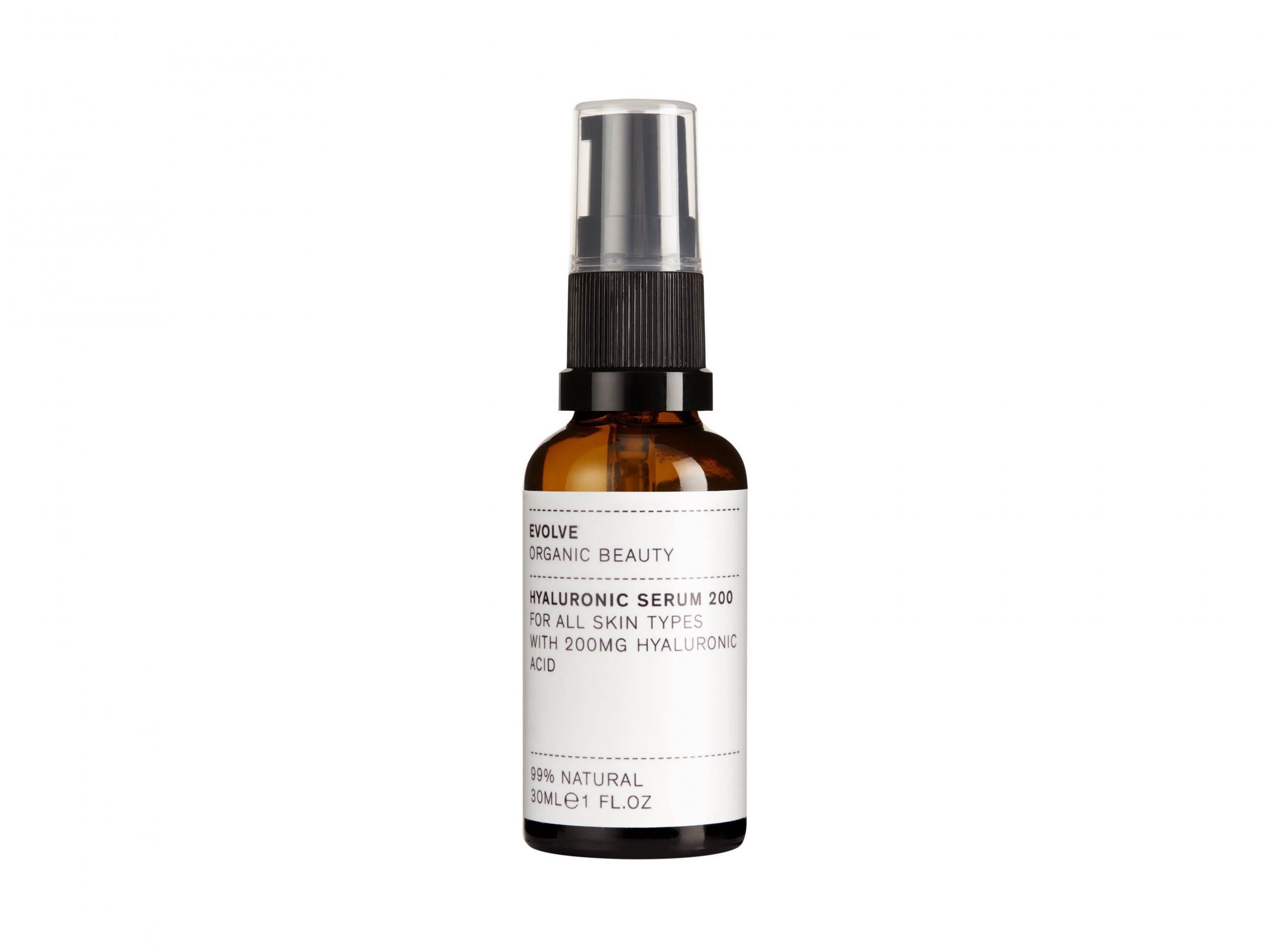
Evolve Beauty products are made in small batches in Hertfordshire. Its hyaluronic serum is a good example of a product that’s fairly low in the organic percentage (36 per cent) but still labelled organic.
But if you can get over that – it is 99 per cent natural – it gives results that easily compare to more mainstream brands.
Make-up
Skincare isn’t the only area of the beauty industry getting the organic treatment, there are many make-up brands embracing it too.
An easy addition to your make-up is lipstick, and a small tube can totally transform your whole face.
In our guide to the best natural and organic makeup products that your face will thank you for, we loved this Axiology lipstick in ‘worth’ (£29, Gloworganic.co.uk) that offers a sheer wash of colour with one-swipe for a low-key wash of colour, or you can build it up to an opaque semi-matte finish.
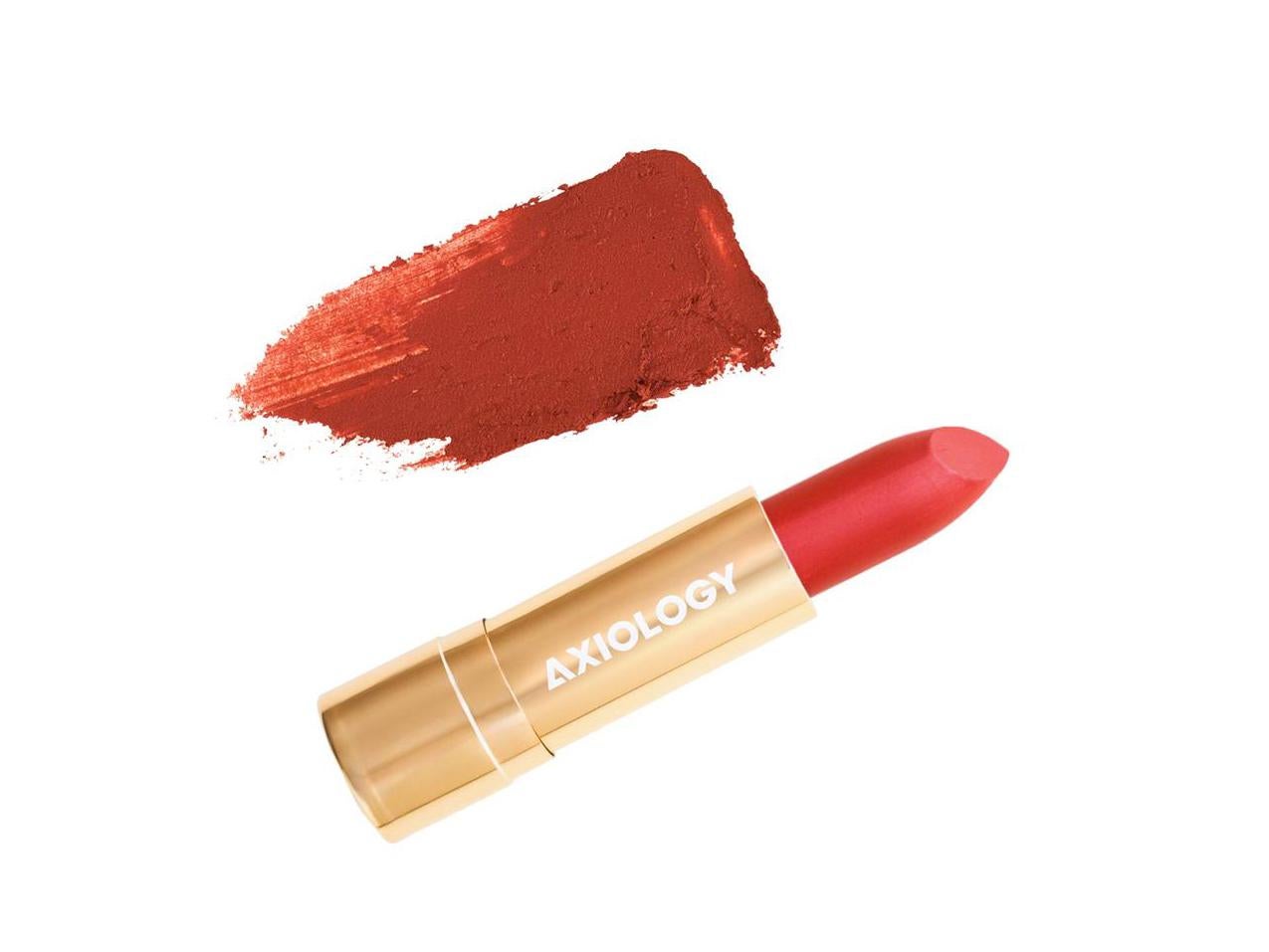
This orange-toned brick shade would be flattering on all skin tones without drying out lips.
For a liquid eyeliner that delivers an intense black cat-eye flick, try this Zao refillable liquid brush liner (£18.95, Beautifullyorganic.co.uk).
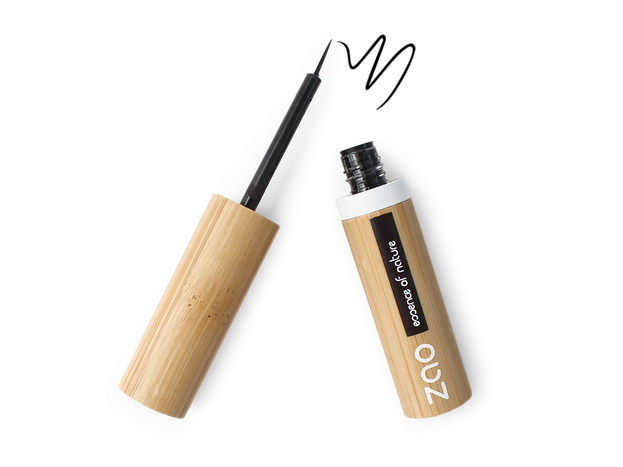
The applicator is a fine brush that allows for a precise liner look, that once dried down we found doesn’t smudge or flake throughout the day
All its ingredients are 100 per cent organic, and it’s also packaged in a refillable bamboo case and a cotton drawstring bag, which is a nice touch. Refills (£11.75, Beautifullyorganic.co.uk) are available too, which makes it very affordable in the long run.
Baby
You may think babygrows are all made alike, but organic cotton has fast become a go-to fabric for baby brands.
This is because it’s super soft, won’t irritate delicate skin and will withstand the countless amount of times it will go through the washing machine.
It’s better for the planet too – according to The Soil Association organic cotton emits up to 46 per cent less greenhouse gas than non-organic.
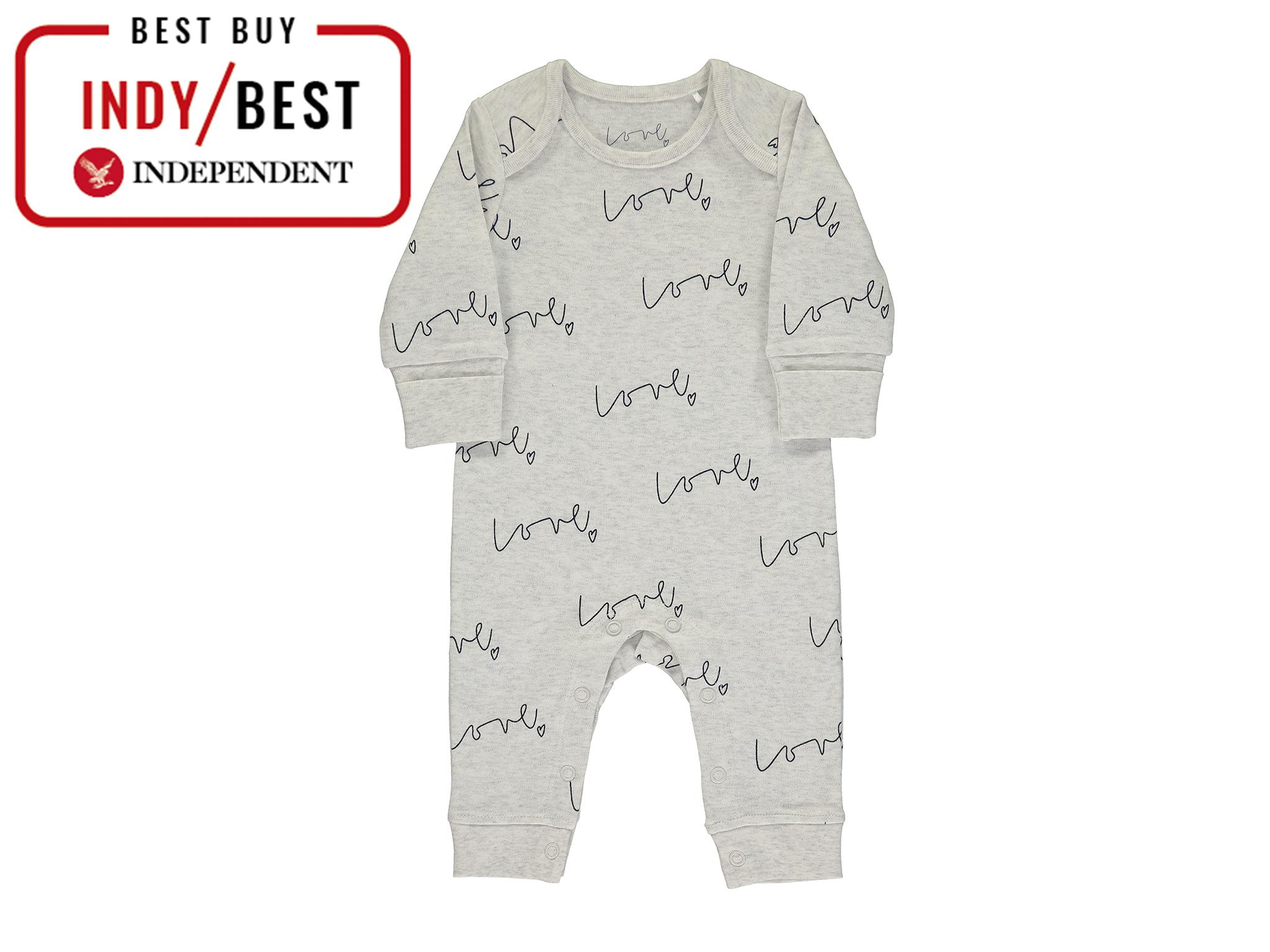
In our guide to the best organic cotton babygrows, we loved this INPO x From Babies with Love multi-print organic babygrow (£21.90, Frombabieswithlove.org) that’s from a gender-neutral collaboration with artist In No Particular Order.
The multi-print babygrow is made with certified GOTS organic cotton yarn, while the envelope neck makes for easy dressing and the perfect present for new parents.
Cleaning
One of the easiest places to make the switch to organic is with household cleaning products.
Overhaul your routine with a few environmentally-friendly, inexpensive alternatives that will rid surfaces of dirt and stains just as well.
In our guide to the best eco-friendly and natural cleaning products, our reviewer loved the Kinn eco-friendly fabric conditioner, neroli (£5.95, Kinn-living.com), thanks to its biodegradable, cruelty-free formulas.
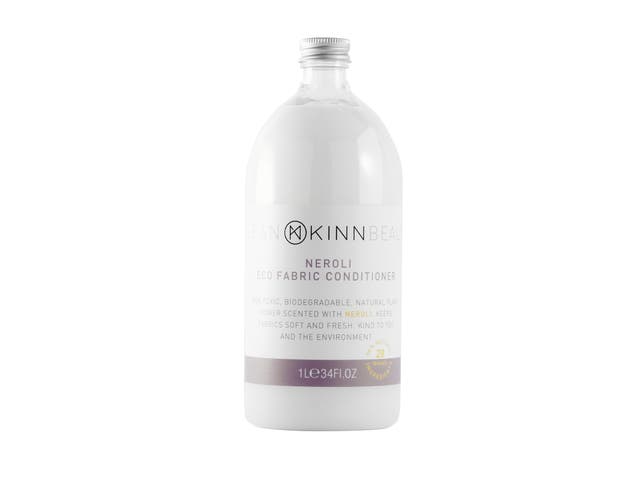
“Washing laundry with soap nuts is great, but if you are used to your clothes coming out of the machine smelling highly scented, you might also want to use this fabric conditioner to add fragrance without damaging the planet. We loved how soft this left our clothes, and the neroli blossom essential oil scent is delicate and floral,” they said.
Voucher codes
For the latest offers on skincare and other beauty buys, try the links below:
As Charlotte Tilbury becomes Leaping Bunny certified, here’s the cruelty-free and vegan beauty brands to know